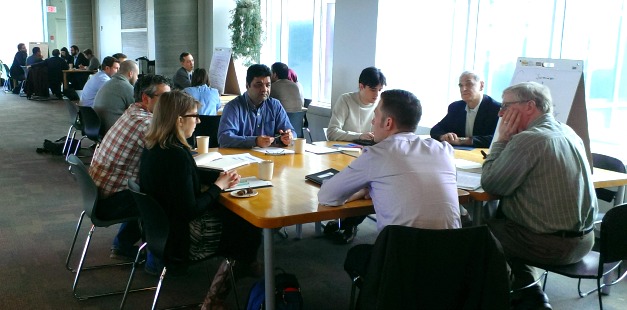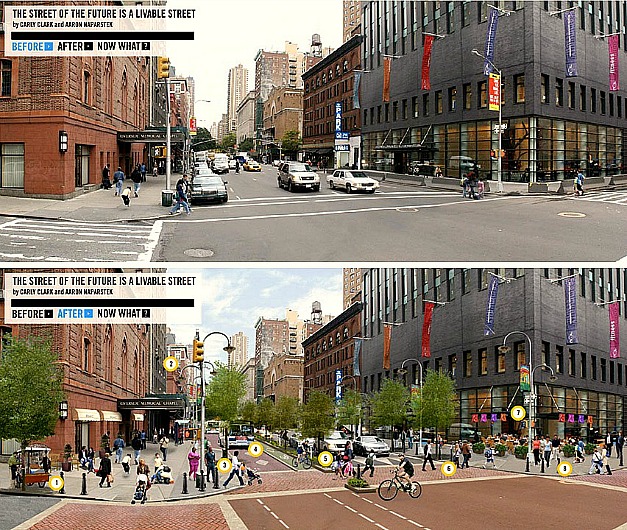McMaster helping to reimagine Hamilton’s streetscape

A recent summit brought together McMaster researchers, community organizations, city councillors and planners from the City of Hamilton to provide input into policy development and to discuss ways to build a business case for the city-wide expansion of complete streets.
McMaster is working with community and city partners to reimagine the streetscape of Hamilton.
McMaster’s Network for Campus-Community Partnerships recently collaborated with the Hamilton Chamber of Commerce and the McMaster Institute for Transportation and Logistics to host a dialogue to inform the complete streets policy currently being developed by the City of Hamilton.
The event brought together McMaster researchers, community organizations, city councillors and planners from the City of Hamilton to provide input into policy development and to discuss ways to build a business case for the city-wide expansion of complete streets; a design concept that seeks to balance the needs of all road users to achieve better social, economic and environmental outcomes along urban road corridors.

David Heidebrecht, coordinator for the Network for Campus-Community Partnerships, was the lead organizer of the event.
“We are pleased to work with our community partners to help facilitate discussion and collaboration on complete streets, an issue that has the potential to significantly impact the Hamilton community,” says Sheila Sammon, McMaster’s Director of Community Engagement. “This event is an example of how through dialogue and engagement, the University and the community can work together to make a difference in the city of Hamilton.”
For the past year, researchers from McMaster’s Institute for Transportation and Logistics (MITL) have been working closely with the City to produce a report on the potential impact of complete streets, the findings of which were presented at the event.
“A lot of people are very interested in this concept,” says Pavlos Kanaroglou, Director of MITL. “Our objective is to provide evidence-based data and analysis to help inform opinions and provide the City of Hamilton with information they can use in the development of their transportation policies.”
Keanin Loomis, CEO of the Hamilton Chamber of Commerce and co-organizer of the dialogue, has been working with MITL, and other Hamilton organizations, to build a business case for the implementation of complete streets.

Loomis says working with McMaster and other community partners has allowed his organization to more effectively share ideas and build momentum around key policy issues.
“For me, it’s about expanding the capacity of my small organization to have an impact that is far greater than the actual operating budget. If we can tap into these resources, that small budget can really be stretched and we can continue to have influence in city-building and thought-leadership within this community.”
Peter Topalovic, Project Manager of Transportation Demand Management at the City of Hamilton who also presented at the dialgue, agrees and says building partnerships and finding ways to engage community is a critical component of effective city-building.
“Our official collaborators are offering us expertise that we may not otherwise have access to and by using that expertise, we’re being more efficient in what we’re doing, and also getting so much more depth not only in terms of community engagement, but also in terms of building the infrastructure we’re talking about. It’s a win-win.”
Read the dialogue summary compiled and co-written by students from McMaster’s W Booth School of Engineering Practice.
A goal of the Network for Campus-Community Partnerships is to connect community partners looking to get involved with McMaster’s research or education-focused community engagement efforts.
Contact the Network to share potential research questions, to notify us of an interest in partnering on student placements, or to share ideas.
A before and after view of how a complete streets design policy can transform the urban landscape.


